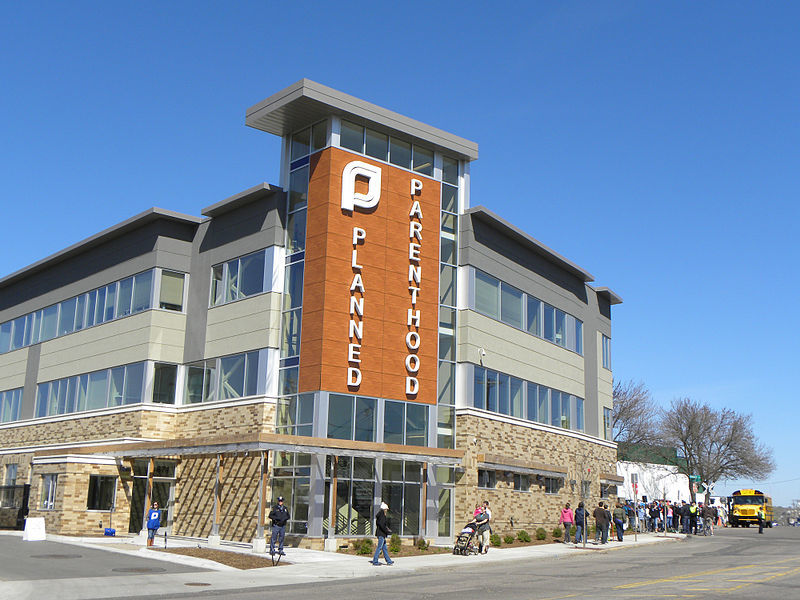

A Planned Parenthood facility in St. Paul, Minnesota.
Planned Parenthood, one of the largest providers of reproductive health services including abortion, was caught in controversy as a representative from the organization was shown discussing the selling of fetal organs in a video released online Tuesday.
The video, which had over 340,000 views at the time of this article's publication, was secretly filmed and released by an anti-abortion group called the Center for Medical Progress. The recent video is a part of an investigation that took place over the span of 30 months, of which more videos and documents will be released in the next few weeks, the group said.
The video shows Deborah Nucatola, the senior director of medical research of Planned Parenthood, discussing graphic details on how certain fetal organs are preserved while other parts of the body are "crushed." Undercover representatives from the Center for Medical Progress (CMP) guise themselves as employees of a "fetal tissue collection center."
"We've been very good at getting heart, lung, liver, because we know that, so I'm not gonna crush that part, I'm gonna basically crush below, I'm gonna crush above, and I'm gonna see if I can get it all intact," Nucatola tells the CMP representatives.
"Every provider has patients who want to donate their tissue, and they want to accommodate them," Nucatola says in the video. "They just want to do it in a way that is not perceived as: This clinic is selling tissue. This clinic is making money off this. In the Planned Parenthood world, they're very, very sensitive to that. Some affiliates might do it for free. They want to come to a number that looks like a reasonable number for the effort that is allotted on their part."
When one of the CMP representatives asks Nucatola what price range is usually given for the specimen, she responds,"You know, I would throw a number out, I would say it's probably anywhere from $30 to $100, depending on the facility and what's involved," says Nucatola. "It just has to do with space issues, are you sending someone there that's going to be doing everything...is there shipping involved? Is someone going to be there to pick it up?"
Planned Parenthood said in a statement the video "falsely portrays" the organization.
"A well funded group established for the purpose of damaging Planned Parenthood's mission and services has promoted a heavily edited, secretly recorded videotape that falsely portrays Planned Parenthood's participation in tissue donation programs that support lifesaving scientific research," said Eric Ferrero, the vice president of communications at Planned Parenthood.
Ferrero added that tissue is donated "for scientific research," and that such donations are carried out "with full, appropriate consent from patients and under the highest ethical and legal standards."
"There is no financial benefit for tissue donation for either the patient or for Planned Parenthood," Ferrero continues in the statement. "In some instances, actual costs, such as the cost to transport tissue to leading research centers, are reimbursed, which is standard across the medical field."
Though donating organs is legal, selling or purchasing organs or tissues is illegal in the U.S., subject to imprisonment and fines.
In response to the video, Texas Senator Ted Cruz called on Congress to investigate Planned Parenthood's activities, and Louisiana Governor Bobby Jindal ordered Louisiana's Department of Health and Hospitals "to conduct an immediate investigation into this alleged evil and illegal activity and to not issue any licenses until this investigation is complete," in his words.
"I am also asking the FBI to assist DHH in investigating this alleged criminal activity by this organization," Jindal added.



















